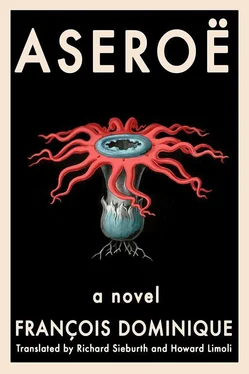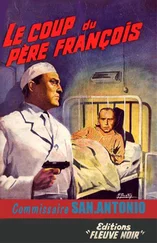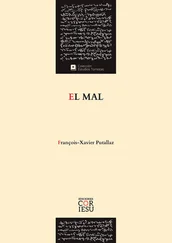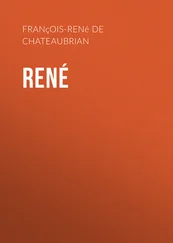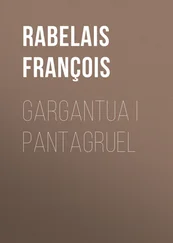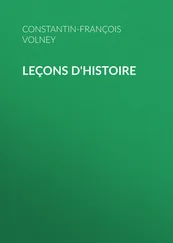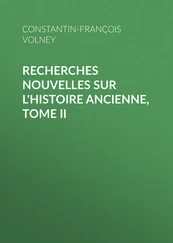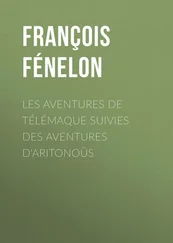François Dominique - Aseroë
Здесь есть возможность читать онлайн «François Dominique - Aseroë» весь текст электронной книги совершенно бесплатно (целиком полную версию без сокращений). В некоторых случаях можно слушать аудио, скачать через торрент в формате fb2 и присутствует краткое содержание. Город: New York, Год выпуска: 2020, ISBN: 2020, Издательство: Bellevue Literary Press, Жанр: Современная проза, на английском языке. Описание произведения, (предисловие) а так же отзывы посетителей доступны на портале библиотеки ЛибКат.
- Название:Aseroë
- Автор:
- Издательство:Bellevue Literary Press
- Жанр:
- Год:2020
- Город:New York
- ISBN:978-1-942658-78-8
- Рейтинг книги:5 / 5. Голосов: 1
-
Избранное:Добавить в избранное
- Отзывы:
-
Ваша оценка:
- 100
- 1
- 2
- 3
- 4
- 5
Aseroë: краткое содержание, описание и аннотация
Предлагаем к чтению аннотацию, описание, краткое содержание или предисловие (зависит от того, что написал сам автор книги «Aseroë»). Если вы не нашли необходимую информацию о книге — напишите в комментариях, мы постараемся отыскать её.
Aseroë — читать онлайн бесплатно полную книгу (весь текст) целиком
Ниже представлен текст книги, разбитый по страницам. Система сохранения места последней прочитанной страницы, позволяет с удобством читать онлайн бесплатно книгу «Aseroë», без необходимости каждый раз заново искать на чём Вы остановились. Поставьте закладку, и сможете в любой момент перейти на страницу, на которой закончили чтение.
Интервал:
Закладка:
I no longer hear Claudine’s words. My mind, my body are beyond sick, shot through by commands sharper than arrows: “Auf die Knie! Hände hoch, Jude!” “On your knees! Hands up, Jew!” My stomach is turning; I feel my head emptying out. Little by little, a memory that is not mine erases my own recollection. I no longer have the energy to fight back against this mental intrusion. Why should I be forced to relive something I myself never experienced? Horrible thoughts assail me on all sides. I hear blows addressed to me from the past. I undergo these blows. The SS breaking into the house, then the fake search of the premises carried out by the underling thugs, who toss around the furniture and destroy whatever lies within their reach. I feel the kicks addressed to my belly and to my face. They strap me down on the kitchen table so I might witness him getting his teeth bashed in and his fingernails ripped out. Why? Because he is simply guilty of existing, guilty of having a name. Four men hold him down on the tile floor; a fifth man pummels his face into a bloody mess and pisses on him while barking orders. The man is already dead, but they keep going after him. “Get him to talk!” They keep on beating him; they want to leave him more than dead. Their hatred knows no end.
I have no more I at my command to write to the end of this scene. As I extend it and retract it in order to gnaw at it, can my writing hand attain any sort of definitive solution that might at last release it from these irrevocable deeds? I bear witness—but without having witnessed anything of the above. Time is out of joint, projecting me toward a past that is not mine. The disaster is so intense, it echoes far ahead into the future.
This grisly state of possession gets all mixed up with a memory that is far more mundane: the memory of a documentary that included German newsreels from the year 1939. It’s springtime, and the Mädchen are dancing in the fields. There they are in a circle, cavorting around the Ideal Aryan Girl (the film is in black and white). The Ideal Blonde is clutching a bouquet of daisies, her fair locks are wafting in the wind, and she is puffing light tufts of dandelion into the breeze. I see their seeds disappear into the sky, a lie on the level of SS spittle. I hear the Nazis chanting their anthems. Flags, the whole military-industrial complex, people in uniform, goose steps, Heil Hitler salutes. The images all blur: the young girl’s lovely hand, her fresh breath, the flowers, the shouts suspended in air, the tortured hand of a madwoman who reminds us of everything we forget. The two figures—the picture of youth subjected to propaganda and the picture of youth subjected to torture—are overlaid. I am driven by a dark instinct to disentangle these two scenes in my mind’s eye. I am driven to submit to this command: “Remember that which you have never experienced!” But this hand going nuts is something that cannot be forgotten. The permanence of the wound cannot be stanched. It is the Devil bowing and bussing your hand.
Placed as she is on her stoop, a statue made of flesh, this Altarpiece Woman does not see me. A Cassandra of modernity at its most abject, is she enough to conjure away this massive act of forgetting—of which she knows absolutely nothing? Is she enough to stave off that most sickening expression of such forgetfulness—namely, “communication”?
Mouths functioning without words, and words without mouths, each disarticulated from the other. That lips should move, speaking in order to say nothing, that lips should impose onto other mouths the oblivion of speech, that words in exile should collapse into one another or throw around their weight on various wavelengths, intercut with the hurrahs of sports fans or canned laughter—all this astonishes me, all this fills me with dread.
I would like to reread these pages and substitute the words with others. I do not recognize them; they no longer belong to us. I can hear the command: “On your knees! Hands up, Jew!” But I can also hear the lines of one of my favorite German poems: “Händen des Mädchen von einst und jetzt” (“The hands of this girl of now and yore”). There is no throb of the heart strong enough to cancel—be it by a succinct universal phrase—the infinite distance that separates the person who tries to speak, and then to sing, and the person who pays no attention to his mouth, spitting out crazed discourses of extermination.

The birth of a word, and then of another, invented by woman. The day when the wound will be healed. Which could be a secret, or the avowal of a secret: to stop “communicating,” lest you become monsters—that is, empty “whos” and empty “whats” subject to the empty questions tossed back and forth by the Major Powers of Communication. To learn to speak—simply—as before… With the murmurings of small children in tow. And with the sheer song of vowels or consonants also providing an escape from the embrace of the void.
5

Aseroë
MY FEBRUARY VISIT to the Accademia in Venice, the emotion felt facing Giorgione’s The Tempest —the flash of lightning suddenly seized—and my reading one year later, in a catalog of the Château de Tanlay, of a letter written to Giorgione by his poet friend Antonio Brocardo. I wrote a short story in which I identified myself with the latter, claiming that from 1480 to 1510 I had worked in Giovanni Bellini’s studio as well as in that of Giorgio Barbarelli, who was known as Giorgione. Thus, I would have been a rare witness to this capture of a flash of lightning .
In this short story (later abandoned), I shrank away from my own private sensory impressions—under the pretext of fictionally embodying an earlier existence I had never experienced—but why did I refuse to open my eyes? Apart from the historical meaning of The Tempest or the disturbance provoked by my observation of this work, the reading of a letter of which I believed myself to be the author had encouraged me to maintain that this ancient canvas contained AT THE PRESENT TIME a visible thought . A thought, translated by artistic means, but in such a way as to move it forward in time—as if just short of or just beyond the possibilities of figurative representation.
I would have granted that Giorgione might have wanted to destroy his painting, having despaired of providing a representation of the impossible; and also that the magic of the lightning flash, according to the aesthetic of the end of the Quattrocento, might come down to us several centuries later as somewhat dimmed or unpersuasive. And that the capturing of the lightning flash would remain what it has never ceased to be for art: an impossibility comparable to the lack of lived life in even the most vibrant of Early Renaissance portraits.
I recall my feelings at that time. It was midwinter and I was looking at the painting and, without making the slightest movement, was anticipating an event, although I didn’t know of what sort. Soon, I sensed that a light was flooding the space and illuminating the soldier and the half-naked Gypsy woman suckling her baby. I was caught up in the landscape of the painting. The lightning flash removed the shadows and traversed the objects without reducing their opacity; it enclosed and traversed me, as well.
I’ve seen hundreds of visitors pass in front The Tempest . Some would only react after having identified its signature (ah, Giorgione’s Tempest !); others would pass by without noticing anything whatsoever. My behavior was unusual enough to trouble me for a long time after my visits. At the end of prolonged contemplation, the lightning—fictionally restrained within the limits of the frame—agreed to offer me the blinding explosion I was anticipating. The original strike of lightning was, as it were, restored by a second flash, in which time was deferred and perturbed by a double emergency—the initial jolt of the painter who had managed to fix this flash in an immobile duration, and its subsequent seizure by my admiring glance, which had to follow a reverse path, resolving the lightning’s original duration into an abrupt effulgence in the now. I suspected Giorgione of having foreseen such a result, but how and why?
Читать дальшеИнтервал:
Закладка:
Похожие книги на «Aseroë»
Представляем Вашему вниманию похожие книги на «Aseroë» списком для выбора. Мы отобрали схожую по названию и смыслу литературу в надежде предоставить читателям больше вариантов отыскать новые, интересные, ещё непрочитанные произведения.
Обсуждение, отзывы о книге «Aseroë» и просто собственные мнения читателей. Оставьте ваши комментарии, напишите, что Вы думаете о произведении, его смысле или главных героях. Укажите что конкретно понравилось, а что нет, и почему Вы так считаете.
